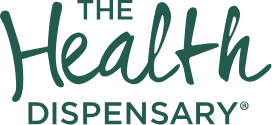The internet is full of health advice, but not all of it is accurate—or even safe. With so much information at our fingertips, it’s easy to fall into the trap of believing false claims, miracle cures, or outdated advice. So how can you tell which sources are trustworthy and which ones might lead you down the wrong path?
At The Health Dispensary, we believe in providing reliable, evidence-based healthcare information to help you make informed choices. Here’s how you can separate fact from fiction when searching for health advice online.
1. Who Owns or Sponsors the Website?
The first step in checking if a website is reliable is to find out who runs it. Ask yourself:
Is the website owned by a reputable health organisation, government agency, or medical institution?
Does the website have a commercial interest in selling a product or service?
Trusted sources usually include:
✔️ Government health websites (e.g., NHS, WHO)
✔️ Universities and medical institutions
✔️ Reputable pharmacies and healthcare providers (like us!)
Be cautious of websites that are pushing products without scientific evidence or making big health claims with little proof.
2. Who Wrote and Reviewed the Information?
Health information should always come from experts. Check whether the content is written or reviewed by:
✔️ Qualified doctors, pharmacists, or medical professionals
✔️ Registered dietitians, physiotherapists, or other specialists
✔️ Credible researchers with experience in healthcare
Avoid websites where:
❌ There’s no mention of who wrote the article
❌ The author has no medical qualifications
❌ The website relies on personal testimonials rather than scientific evidence
At The Health Dispensary, our advice is always reviewed by healthcare professionals, so you can trust the information you receive.

3. When Was the Information Last Updated?
Medical advice changes as new research emerges, so it’s important to check when an article was written or last reviewed. Reliable websites update their content regularly to reflect the latest scientific findings.
Be cautious if:
❌ The article doesn’t list a publication or review date
❌ The advice sounds outdated compared to what healthcare professionals recommend
❌ The website frequently changes its recommendations without clear explanations
4. Is Your Privacy Protected?
When looking up health information, privacy matters. A reputable website should have a clear privacy policy that explains how your data is handled.
Ask yourself:
Does the website clearly state how it protects your data?
Are you required to enter personal details to access information?
Avoid websites that:
❌ Ask for unnecessary personal information
❌ Do not have a privacy policy
❌ Sell your data to third parties
At The Health Dispensary, we take privacy seriously and never share your information without your consent.

5. Does the Website Promise Miracle Cures?
If a website claims it has a quick and easy solution for all your health problems, be sceptical.
Be wary of:
❌ “Miracle cures” that sound too good to be true
❌ Websites that say “Doctors don’t want you to know this secret!”
❌ Articles that rely on celebrity endorsements rather than science
Good health often requires time, consistency, and evidence-based treatments. There are no shortcuts!
Who Can You Trust for Reliable Health Information?
When searching for health advice online, stick to these trusted sources:
✔️ NHS.uk – The UK’s official health advice website
✔️ World Health Organization (WHO) – Global health guidance
✔️ The Health Dispensary – Reliable, pharmacist-approved information
✔️ Medical universities and research institutions
When in doubt, ask a qualified healthcare professional rather than relying on Dr. Google!

Final Thoughts: Stay Smart, Stay Safe
Misinformation spreads fast, especially online. By asking the right questions, you can protect yourself from false health claims and make informed decisions about your well-being.
At The Health Dispensary, we’re here to provide trusted, evidence-based advice to help you live a healthier life. If you ever have questions about your health, get in touch with us—we’re happy to help!


